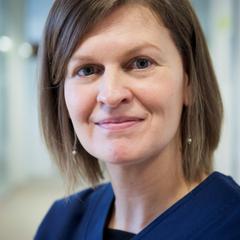Hospitals that currently have their own pasteurisers and thus own their own breast milk donor bank are also supported at a flat rate per litre of milk. There is an investment of a total of 1.1 million euro. “Every premature baby in Belgium has, irrespective of its place of birth, the right to the best possible start in life. For these premature babies, breast milk really is medication", minister for Public Health Frank Vandenbroucke says.
Therapeutic value
The fact that breast milk has indisputable health benefits, is well-known. But if a baby is premature and ends up in neonatology, it is not self-evident to get the milk production in the mother started. A premature birth is always the result of a problematic pregnancy, either in the mother or the foetus. Very often, milk production in the mother has not yet started then. However, it is especially important for premature babies to get a good start with breast milk. Apart from the health benefits for all newborn babies, breast milk is of extra therapeutic value for premature babies. New scientific insights even consider breast milk for premature babies as a medicine.
Breast milk contributes to fewer neonatology deaths
The expansion of the external breast milk donor banks at UZ Leuven and UCH Liège will ensure that in the future all 19 existing neonatal intensive care units in our country will be able to give breast milk to babies who are particularly vulnerable. Every unit will be provided with a stock. This will ensure that all preterm babies with specific needs can count on the best possible start. Women that donate milk, and also the milk itself, will be carefully screened. Donated milk is subsequently pasteurised. For neonatal infants, it is essential they are given safe milk. Even one single bacteria could be harmful. In future, the goal is to have women with surplus breast milk in addition to feeding their own babies apply through a website. Breast milk is reimbursed at a flat rate to hospitals.
The milk collected in Leuven of Luik to cater for the rest of Belgium, can count on a financial flat rate per litre that covers the cost of checking, processing and transporting the donor milk. Milk from the hospital's own milk donor bank will also receive financial compensation. In total, Minister Vandenbroucke is investing 1.1 million euros. When fully operational, the mother milk banks will be able to process around 3,000 litres of milk. This will allow them to help an average of 1,500 babies a year.
Dokter An Eerdekens, neonatologist and lactation specialist at UZ Leuven: “We are very happy with the recognition and much-needed financial support of our breast milk donor bank. Scientific research has shown that when the mother does not produce sufficient breast milk, the use of donor breast milk is of added value to the health of the premature baby. In comparison with infant formula, breast milk protects against a number of serious intestinal infections. Breast milk has been proven to contribute to fewer neonatal deaths.
To further expand the breast milk donor bank, additional means were urgent. The process is fairly intensive: the mother that donates milk needs to be screened for diseases, and the milk itself will undergo an elaborate process in order to not contain any viruses or bacteria. UZ Leuven expects to actively start in the autumn of 2024 to start helping out other hospitals in Flanders.
This article is part of the Annual report 2024
- First patient receives radiotherapy with innovative ‘RAD’ technique
- Single-arm surgical robot offers new possibilities for transoral surgery
- UZ Leuven prosa team celebrates 10 years of tailored care for children